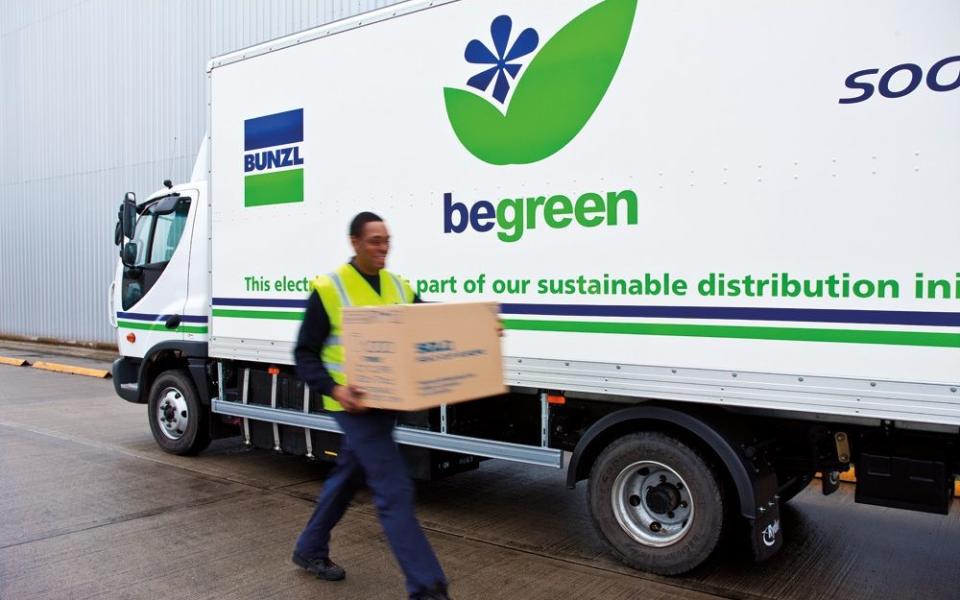After a 54pc gain, it’s time to sell this stock and invest the money elsewhere

Selling stocks that have generated large capital gains can be surprisingly difficult. Even the most rational investors will naturally feel an element of greed that inclines them to hold on for even greater profits.
Furthermore, many investors subscribe to the investment adage that encourages them to “cut their losers and let their winners run”.
While in some cases highly profitable positions have further capital gain potential, based on their current growth prospects and valuation, in other instances it is far more logical to sell up and invest elsewhere.
After all, investors must continually seek to allocate their limited capital in the most efficient fashion. Holding overvalued shares when other stocks are far more appealing could represent a big “opportunity cost” that eats into their investment returns over the long run.
For example, shares in Bunzl have surged by 54pc and outperformed the FTSE 100 index by 49 percentage points since our initial recommendation in May 2019. Now is the right time to sell them.
The company, a supplier of goods such as personal protection and hygiene products, no longer offers an attractive investment opportunity relative to other listed businesses.
Granted, it still has an excellent balance sheet, a sound business model and a strong management team. Its focus on acquisitions has been extremely effective; it has spent £1.7bn over the past four years on companies that have enhanced its financial performance.

However, its investment appeal is diminishing as the era of rampant inflation finally comes to a close.
Indeed, a key reason for our positive view of the business has been its capacity to pass rising costs on to customers because its agreements with them factor in product price movements.
Now that investors are likely to become less concerned about inflation as it falls towards the Bank of England’s 2pc target, it seems natural that there will be a decline in interest in stocks able to overcome rapid price rises and maintain profit margins in spite of high inflation.
This could prompt lower demand for Bunzl’s shares, thereby leading to a less impressive share price performance over the coming months.
Investors may also become increasingly disillusioned with the company’s growth rate. Although its latest trading update showed that it continued to perform well, with operating profits for the 2023 financial year expected to be above the company’s previous guidance, earnings per share are expected to rise by just 1pc in the current year.
And with operating profit margins expected to rise above previous record levels, there may be more limited scope for further improvements in this area.
This makes it increasingly difficult to justify the stock’s price-to-earnings ratio of around 17.5.
This is especially true at a time when many other shares in the FTSE 100, and particularly in the FTSE 250, trade at bargain-basement prices after the London stock market’s lacklustre performance over recent years.
Cyclical stocks are particularly appealing as interest rate cuts near.
They are likely to be among the biggest beneficiaries of any resulting improvement in economic growth.
Such companies are currently priced at extremely low levels, which means investors who continue to hold Bunzl face a significant opportunity cost – the missed opportunity to invest more profitably elsewhere.
Of course, cyclical companies that trade cheaply could continue to experience difficult operating conditions in the short run. Inflation may prove to be rather sticky and remain above the Bank of England’s target for some time.
And even if interest rate cuts prove to be swift over the coming months, time lags mean their impact is unlikely to filter through to company profits until next year.
However, in Questor’s view the economy is poised to enter a new era characterised by low inflation, falling interest rates and improved economic growth.
Cyclical companies are likely to be best placed to capitalise on it because their low valuations provide significant scope for capital growth over the long run.
Therefore, while Bunzl has undoubtedly been a worthwhile holding over recent years, it now lacks appeal relative to other stocks.
Its high valuation, limited earnings growth potential and the changing economic landscape mean there are plenty of better investment opportunities available elsewhere.
Questor says: sell
Ticker: BNZL
Share price at close: £32.18
Read the latest Questor column on telegraph.co.uk every Monday, Tuesday, Wednesday, Thursday and Friday from 6am
Read Questor’s rules of investment before you follow our tips


 Yahoo Finance
Yahoo Finance 